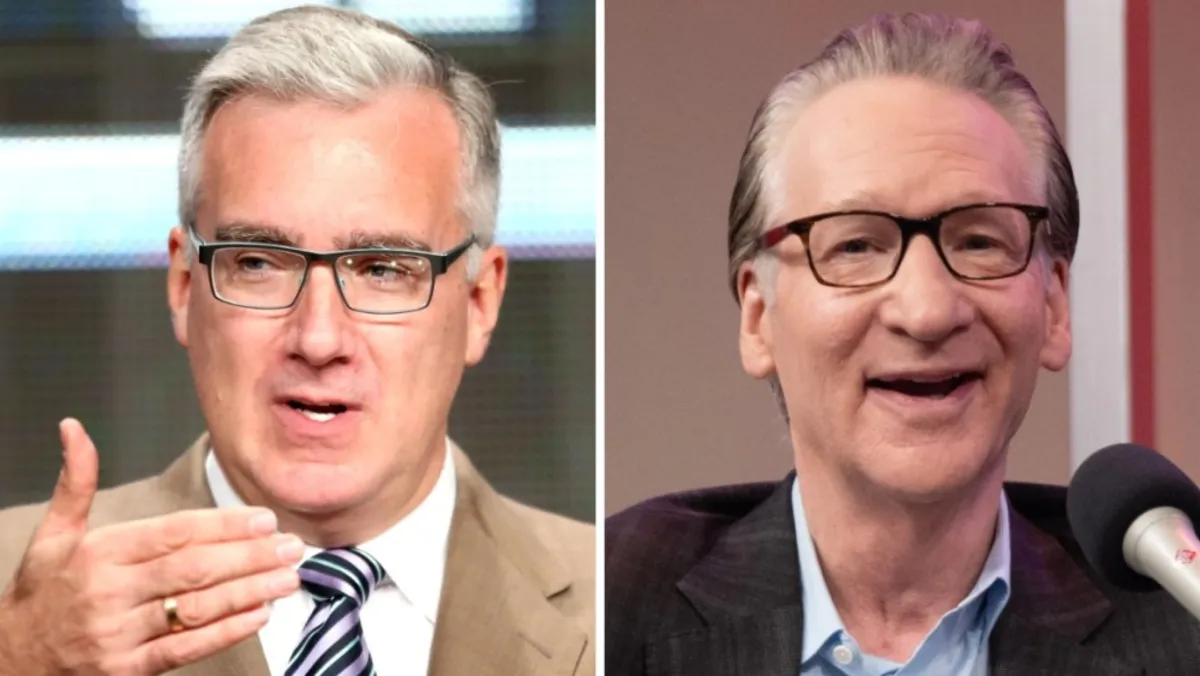
Media firebrand Keith Olbermann has recently launched a fervent critique of comedian and HBO/Max host Bill Maher, focusing on Maher’s positive comments regarding former President Donald Trump following a dinner organized by musician Kid Rock. Olbermann took to X (formerly Twitter) to express his disapproval, labeling the dinner a mere transactional gesture aimed at preserving Maher’s career. In his post, Olbermann openly questioned Maher’s character and intentions, stating, “BTW don’t overanalyze Maher prostituting himself to Trump.” He further criticized Maher for working with the same individuals at Warner Bros. who he claims have corrupted CNN.
Keith Olbermann, known for his often combative approach in the media landscape, claimed to have personal insights into Maher’s character that span nearly five decades. “I’ve known Bill since 1978. He was a shameless opportunist with no real principles then and he remains so,” Olbermann asserted. His remarks suggest a deep-seated frustration with Maher, implying that the comedian's recent actions are merely a strategy to maintain his position at HBO.
The backlash from Olbermann came after Maher’s monologue on his late-night show, “Real Time with Bill Maher,” where he attempted to downplay the significance of his dinner with Trump. In his segment, Maher mocked both the media and the public for overreacting to the meeting, stating, “Let me first say that to all the people who treated this like it was some sort of summit meeting, ‘You’re ridiculous.’” His comments indicated a potential re-evaluation of Trump, contrasting sharply with his previous critical stance.
Just two weeks prior, on a March 28 episode, Maher had aired a segment titled “Trump Devotion Syndrome,” where he criticized the MAGA movement and the former president. This recent shift in tone has not gone unnoticed by Olbermann, who perceives the dinner and Maher’s subsequent remarks as little more than a form of damage control aimed at securing his place within the Warner Bros. Discovery media empire, which encompasses both HBO and CNN. Olbermann has accused these platforms of drifting ideologically, further intensifying his critique of Maher.
As the media landscape continues to evolve, the long-term consequences of Maher’s dinner with Trump on his credibility and ratings remain uncertain. However, the reaction from the public has already begun to shape opinions, with Olbermann firmly asserting his stance. The discourse surrounding this incident reveals a deeper divide in media perspectives, with Olbermann clearly taking a stand against what he perceives as Maher’s opportunism.
In conclusion, the ongoing tensions between Keith Olbermann and Bill Maher highlight significant issues within the media today, particularly regarding integrity and authenticity. As audiences continue to engage with these narratives, the outcomes will likely influence not only Maher’s career but also the broader conversation surrounding media ethics and political commentary.